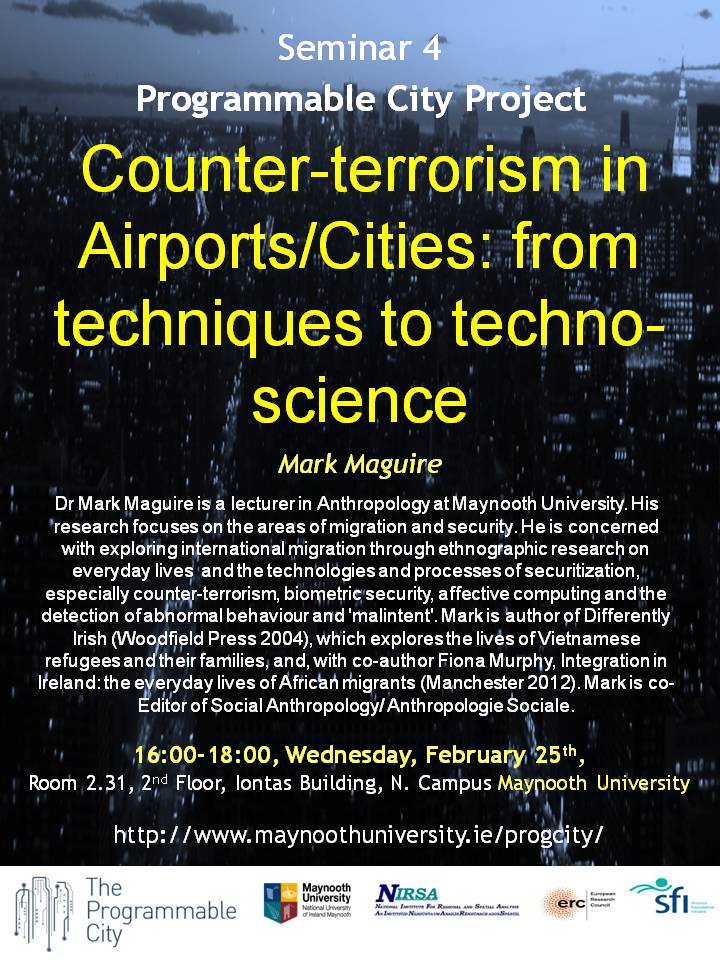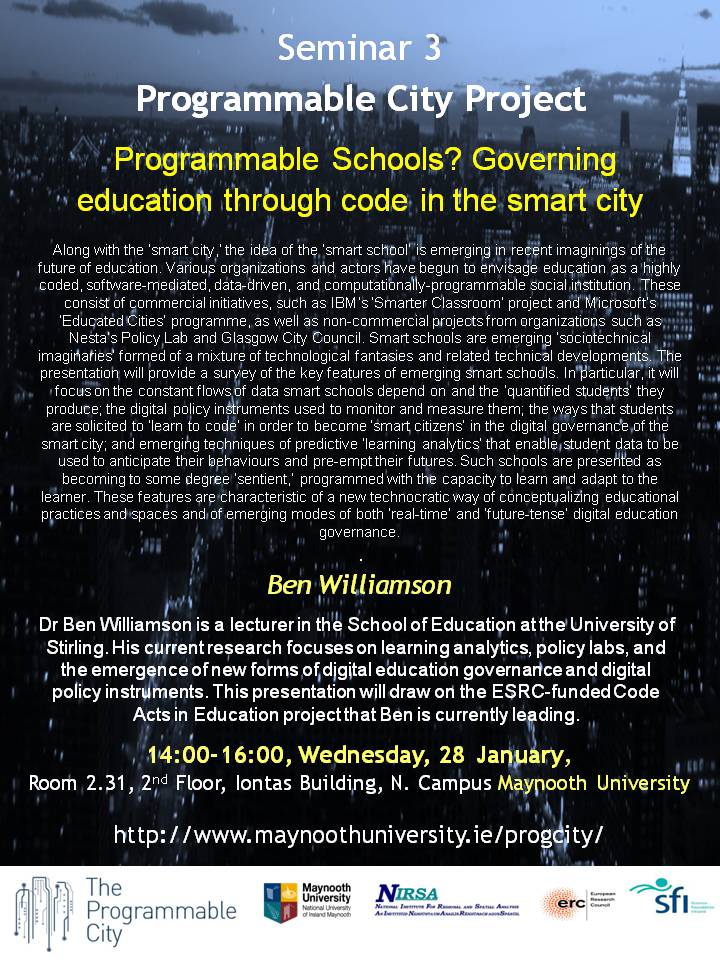Mark Boyle, Chris Brunsdon & Rob Kitchin invite you to a BOOK LAUNCH Thursday 26th, February 2015, 4.30pm, Maynooth University Bookshop, North Campus
Using the story of the “West and the world” as its backdrop, this book provides for beginning students a clear and concise introduction to Human Geography, including its key concepts, seminal thinkers and their theories, contemporary debates, and celebrated case studies.
“An excellent textbook for introductory courses in Human Geography.” Prof. Patricia Wood, York University, Toronto
“In this textbook, Mark Boyle combines his broad and deep understanding of the discipline of Human Geography with his great passion and enthusiasm for education and teaching.” Prof. Guy Baeten, Lund University
This is an excellent and student-friendly text from two of the world leaders in spatial analysis. It shows clearly why the open source software R is not just an alternative to commercial GIS, it may actually be the better choice for mapping, analysis and for replicable research. Prof. Richard Harris, Bristol University
This is a vital primer to what is ‘Big’ about geocomputation: new data, innovative methods of analysis, new geographic information technologies and, above all, an over-arching rethink of how we represent geography. Prof. Paul Longley, UCL
The Data Revolution provides a synoptic and critical analysis of big data, open data, and data infrastructures.
“Anyone who wants to obtain a critical, conceptually honed and analytically refined perspective on new forms of data should read this book.” David Beer, University of York
Funny, engaging, fast-paced and hugely enjoyable … a unique combination of comedy, both gentle and black, and Grand Guignol murder and mayhem.” Michael Russell, author of The City of Strangers
ALL WELCOME


